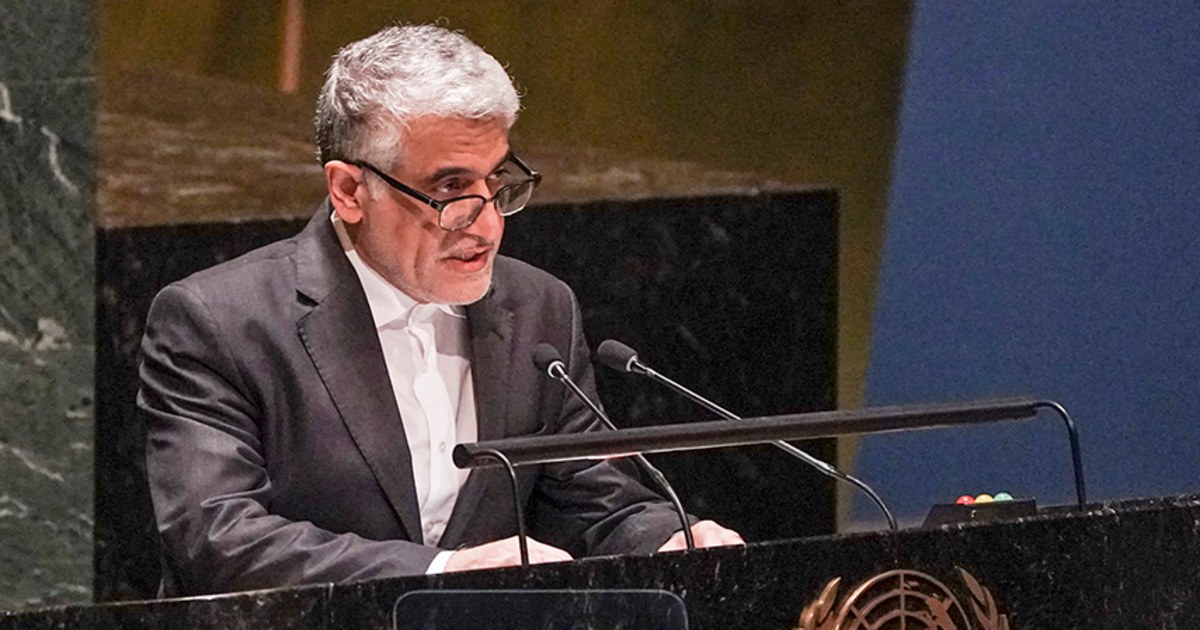
Iran is not providing weapons to Houthi forces in Yemen and does not exert control over the militants or other armed groups in the region that are launching attacks on the United States and Israel, Iran’s U.N. ambassador told NBC News’ Lester Holt in an interview.
Asked if Iran is arming Houthi militants who have unleashed dozens of drone and missile attacks on commercial ships in the Red Sea and Gulf of Aden in recent months, Amir Saeid Iravani said: “Not at all.”
The diplomat added that the Houthis “have their own weapons” and that Iran does not issue instructions on how they should use them.
Describing Iran’s relationship with armed groups that Tehran calls the “Axis of Resistance,” Iravani said his government has something akin to a “defense pact” with the groups that he compared to the NATO alliance.
For more on this story, tune in to “NBC Nightly News with Lester Holt” tonight at 6:30 p.m. ET/5:30 p.m. CT or check your local listings.
“We are not directing them. We are not commanding them. We have a common consultation with each other,” Iravani said.
But he said Iran does arm Hamas and other Palestinian militants, though those groups make their decisions as well.
The envoy said Iran played no part in the Oct. 7 Hamas attack on Israel, which killed some 1,200 people, many of them civilians.
“We have not participated in this decision. It was the Palestinian decision and the Palestinian implementation. We have … no role in this case,” he said.
The United States and other governments have long accused Iran of arming, training and financing a network of proxies in Lebanon, the Gaza Strip, Iraq, Syria and Yemen, citing recovered weapons manufactured in Iran and the presence of advisers from Iran’s Revolutionary Guards. The Defense Intelligence Agency on Tuesday said an analysis of publicly available images shows the Houthis are using Iranian-made ballistic missiles and drones to target commercial shipping in the Red Sea.
Iravani said that Iran wanted to “calm the situation” in the Middle East and that the best path to lowering tensions was to forge a cease-fire between Israel and Hamas.
“We don’t want crisis in this region,” he said.
But he said that Iran would not be cowed by threats from the U.S. and that it was prepared to defend itself if necessary.
“I think that the language of threat will not work against Iran. The language of cooperation and respect will work against Iran,” he said. “If you think that Iran has fear from the threats, you are absolutely wrong.”
Source: | This article originally belongs to Nbcnews.com









